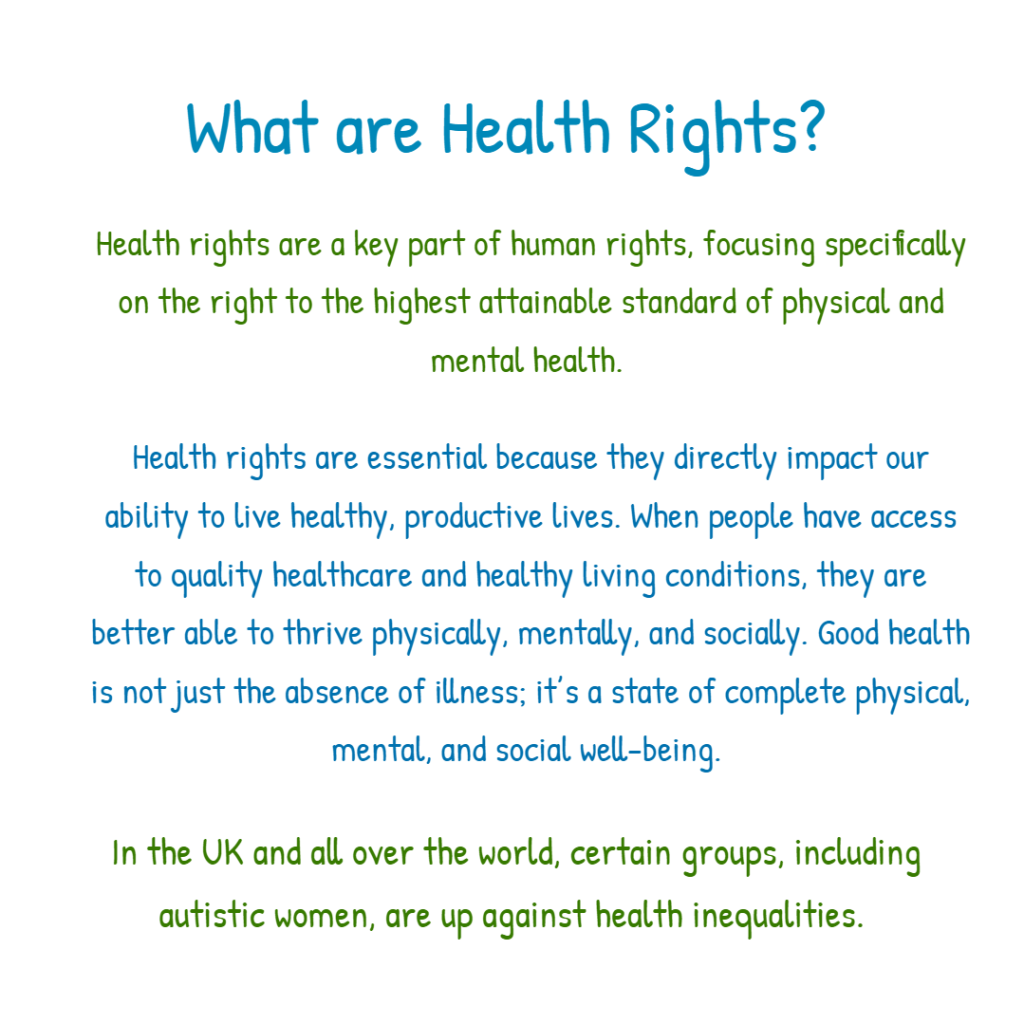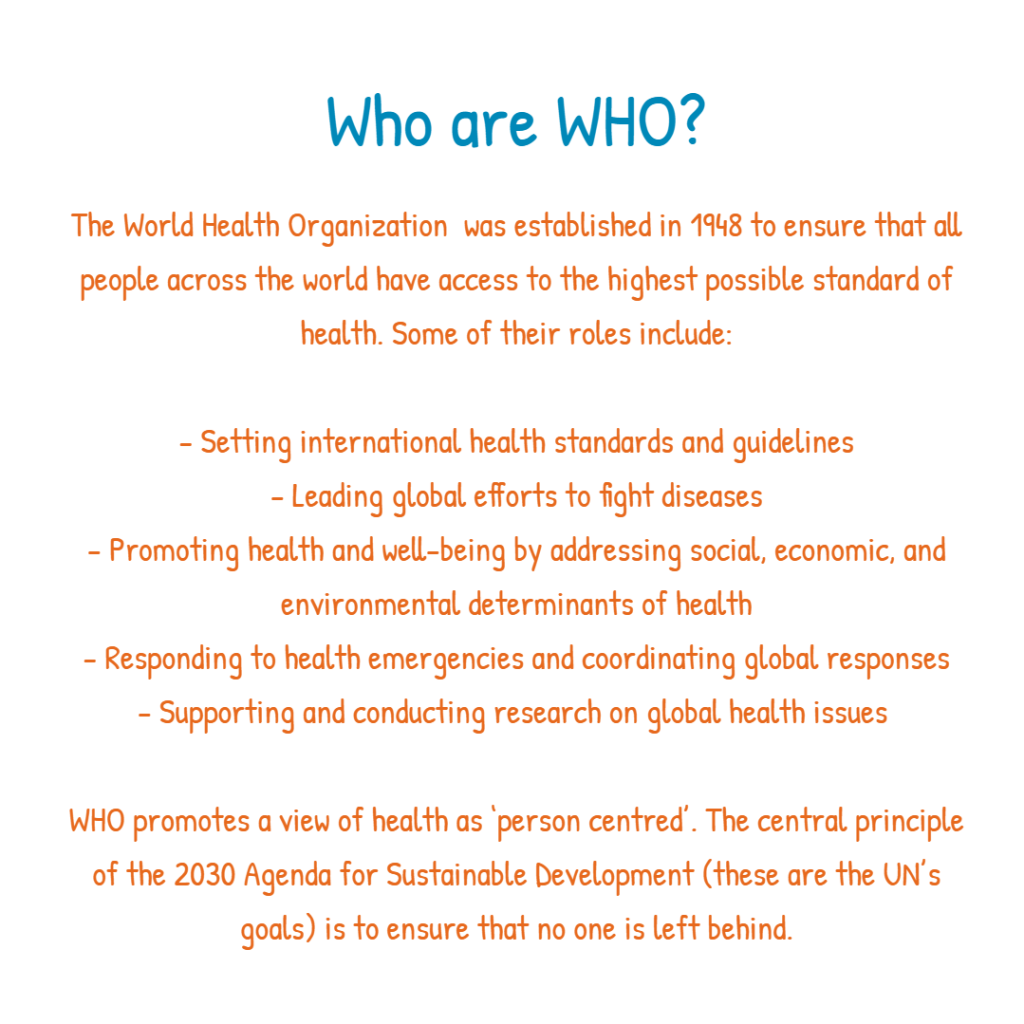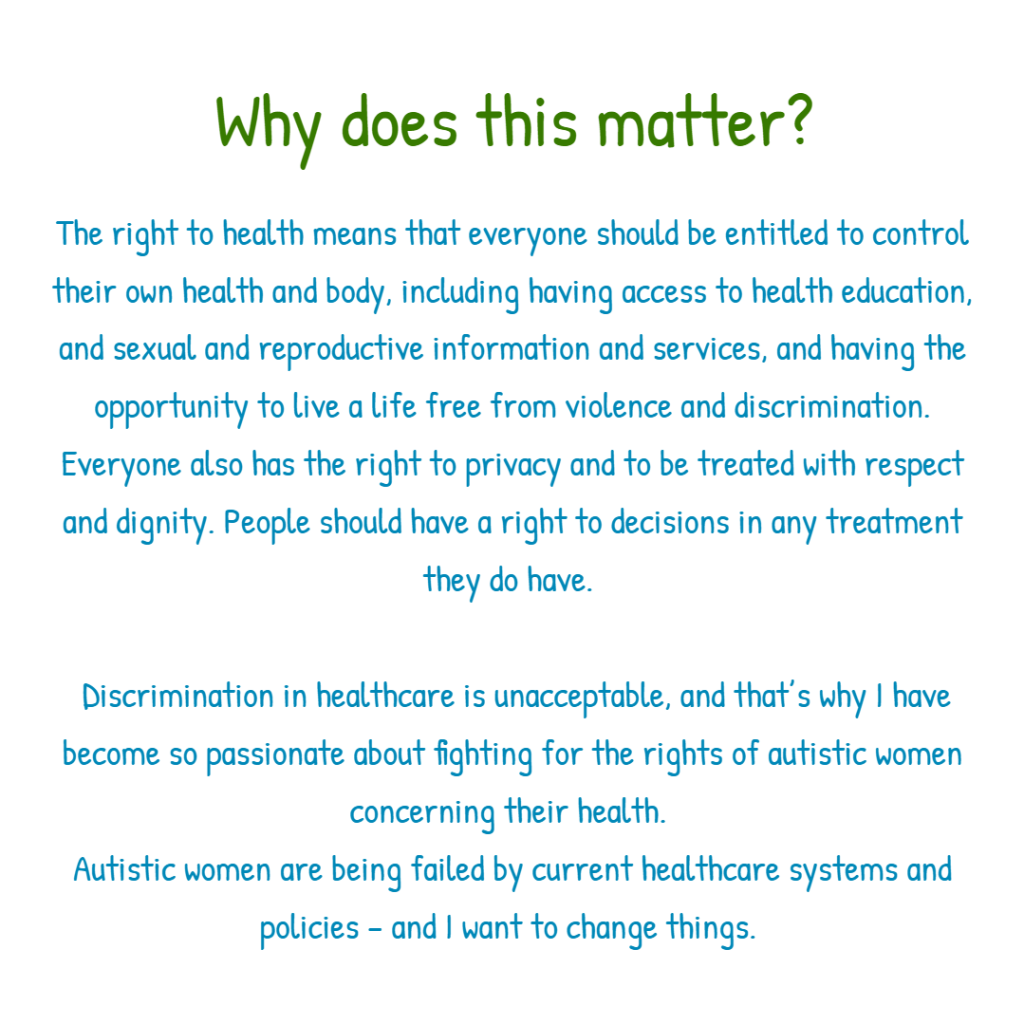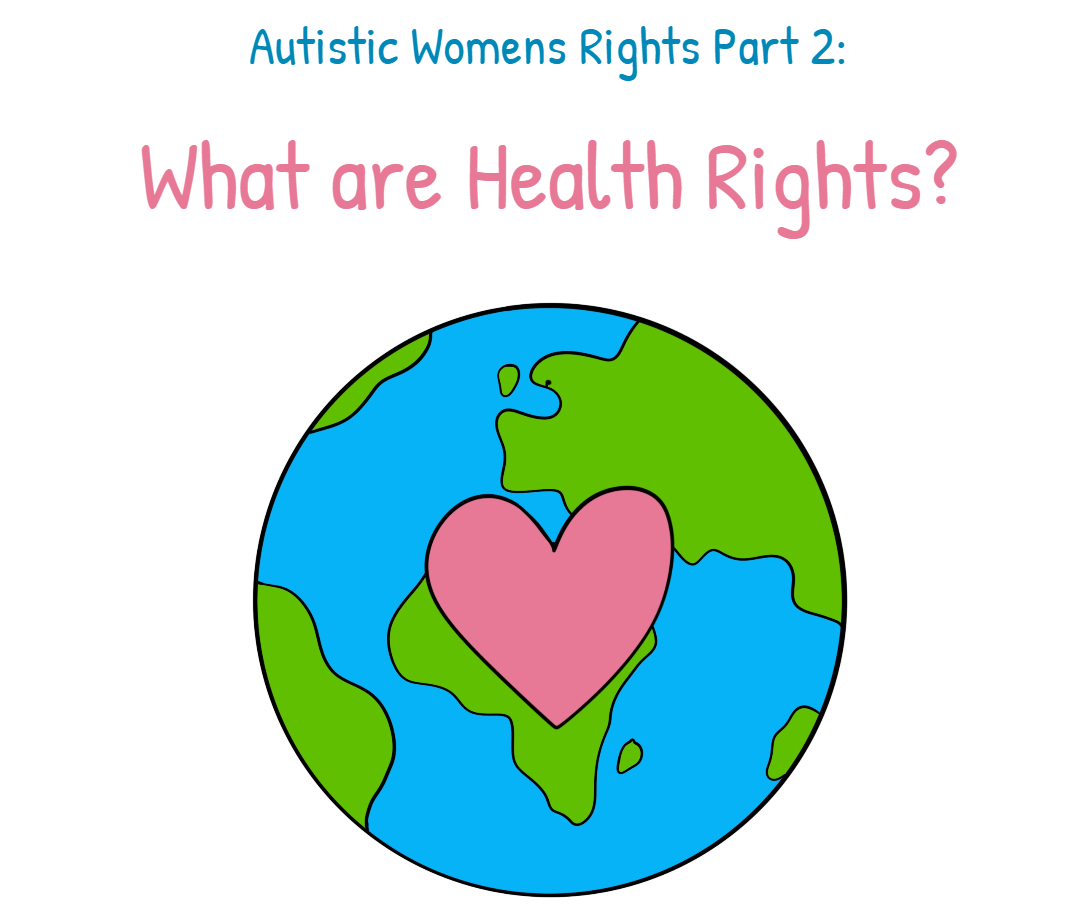So, moving on from human rights – what ARE health rights? Since the UN set out the 30 basic human rights, it has expanded on certain areas or points of focus, including health rights, which are affected and overlap with many different human rights. Health rights are a key part of human rights, focusing specifically on the right to the highest attainable standard of physical and mental health. This means everyone should have equal opportunity to good health and wellbeing, and covers a wide range of elements, some of which include:
- Access to Health Services: Everyone should be able to access appropriate medical care (be it for their physical or mental health), including preventive services like vaccinations and treatment when sick
- Availability of Essential Medicines: Medicines and treatments that are essential for treating common health conditions should be available to all who need them.
- Healthy, Safe Living Conditions: This includes safe drinking water, adequate sanitation, nutritious food, a clean environment, as well as living in a safe environment free from risk of abuse or violence.
- Health Education: People have the right to access information and education that helps them make informed decisions about their health, and that gives them the opportunity to look after their own health and wellbeing.
Why Are Health Rights Important?
Health rights are essential because they directly impact our ability to live healthy, productive lives. When people have access to quality healthcare and healthy living conditions, they are better able to thrive physically, mentally, and socially. Good health is not just the absence of illness; it’s a state of complete physical, mental, and social well-being.
In the UK and all over the world, certain groups, including autistic women, are up against health inequalities. By ensuring health rights for all, we work towards a fairer, more just world where everyone has an equal opportunity to live their lives and be happy.
Who are WHO?
The World Health Organization (WHO) was established in 1948 with the primary goal to ensure that all people across the world have access to the highest possible standard of health. Some of their main roles include:
- Setting international health standards and guidelines
- Leading global efforts to fight both infectious and non-communicable diseases
- Promoting health and well-being by addressing social, economic, and environmental determinants of health
- Responding to health emergencies and coordinating global responses
- Supporting and conducting research on global health issues and developing new tools and technologies to improve health outcomes
- Advocating for better health services, and committing to health as a fundamental human right.
WHO promotes a view of health as ‘person centred’. The central principle of the 2030 Agenda for Sustainable Development (these are the UN’s goals) is to ensure that no one is left behind.
WHO look at all aspects of health. Good health is about access to healthcare, but it is also partly determined by other basic human rights including access to safe drinking water and sanitation, nutritious foods, adequate housing, education and safe working conditions. The right to health also means that everyone should be entitled to control their own health and body, including having access to health education, and sexual and reproductive information and services, as well as having the opportunity to live a life free from violence and discrimination. Everyone also has the right to privacy and to be treated with respect and dignity. People should have a right to decisions in any treatment they do have.
When people are marginalised or face stigma or discrimination, their physical and mental health suffers. Discrimination in healthcare is unacceptable, and that’s why I have become so passionate about fighting for the rights of autistic women concerning their health. I believe autistic women are being failed by current healthcare systems and policies – and I want to change things.




Leave a Reply